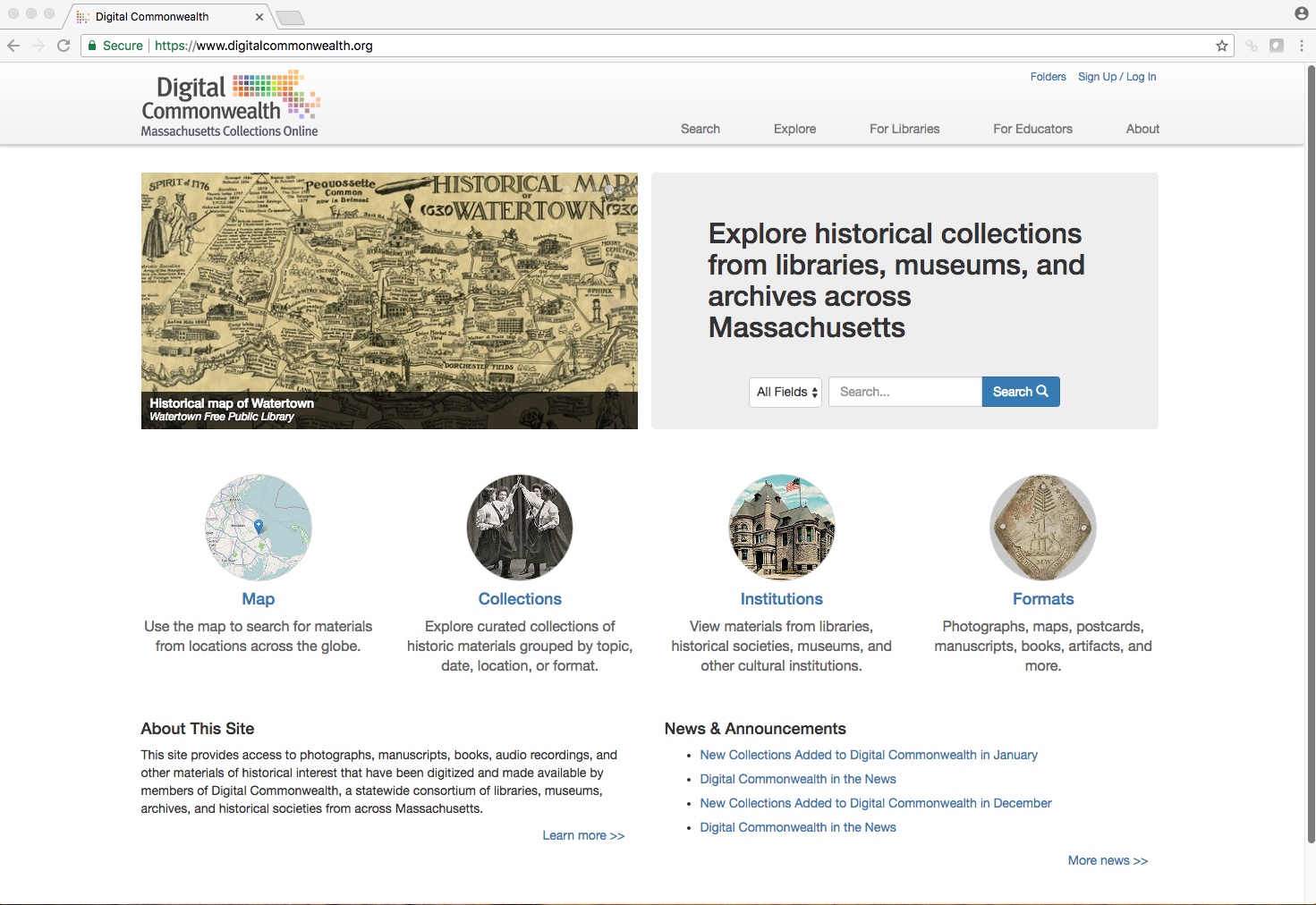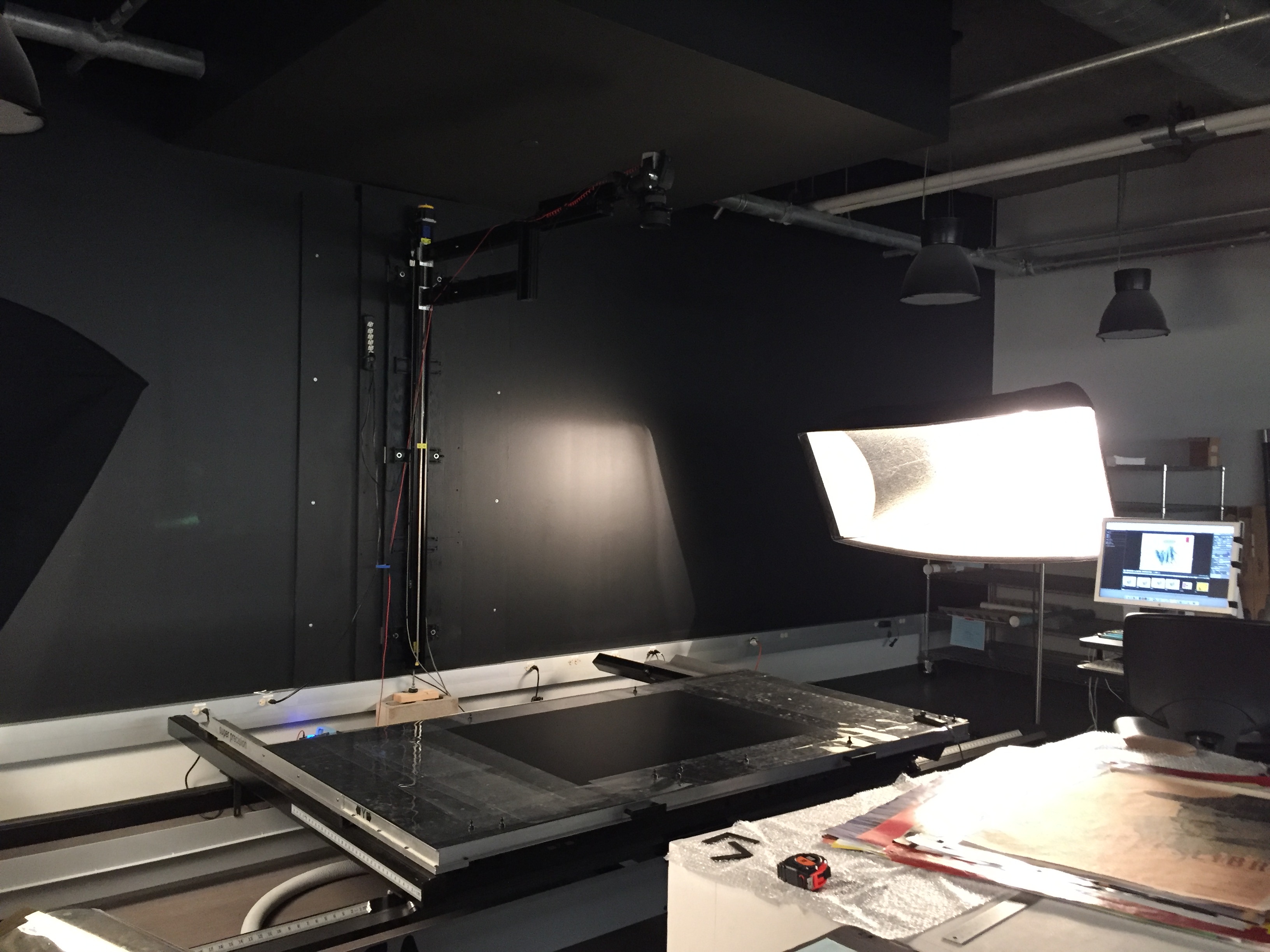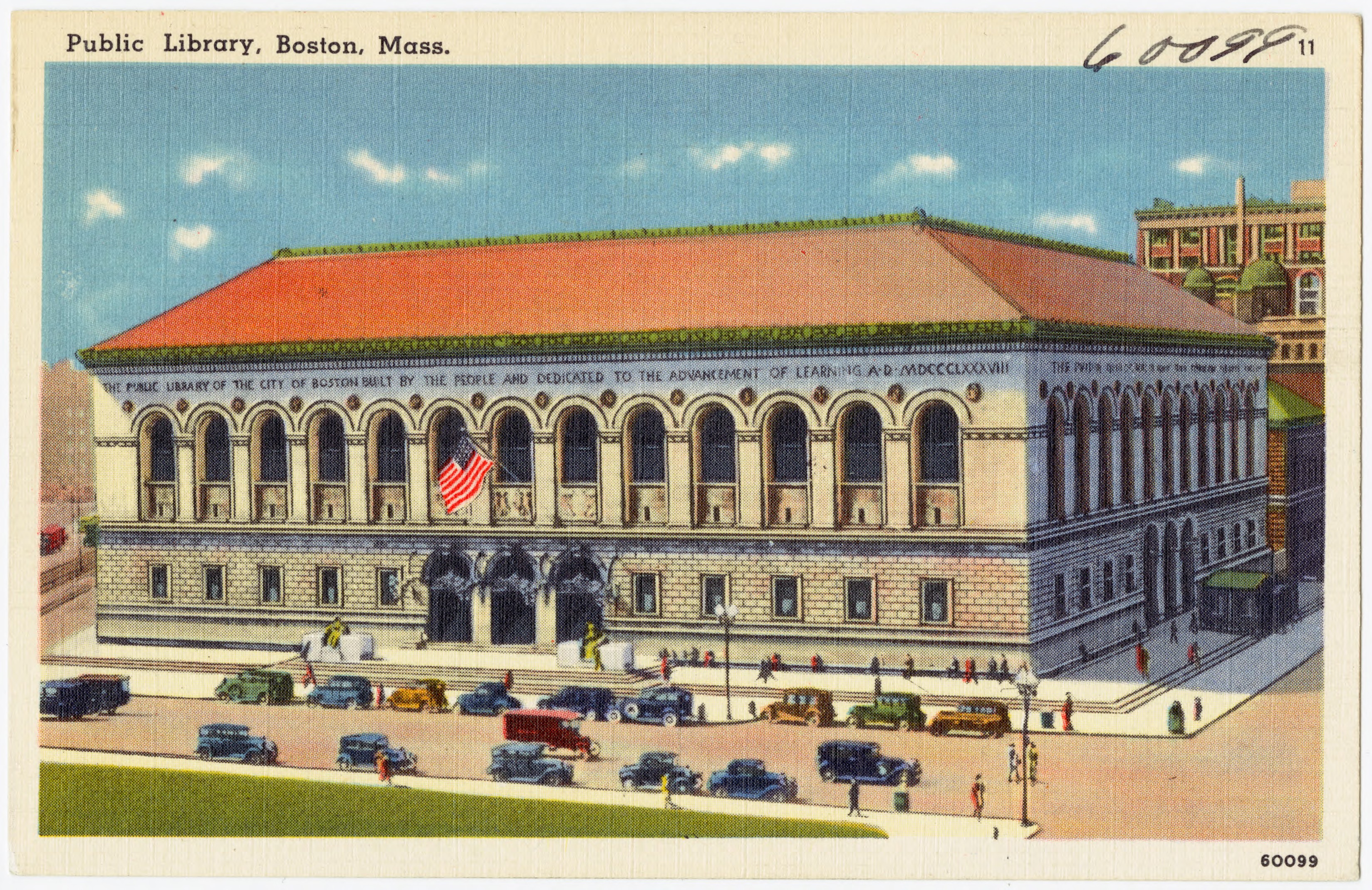I'd like to introduce you to the rare and interesting historical materials that the Boston Public Library makes available online through Digital Commonwealth. We’ll mostly be doing that through featuring images and collections that we think are particularly interesting or speak to current events in some way. But I thought it would be best to start by introducing ourselves and describing the program.
Digitization is all the rage in libraries and museums these days. I doubt that you could find a major institution anywhere that doesn’t at least gesture towards making their stuff available online. Here’s the Museum of Fine Art’s Digital Library. It’s easy to see why. The MFA could never fit all of its art on the walls of the building. As much as we might want to, the BPL can’t let everybody who wants to wander around the rare books library and pull medieval manuscripts off the shelves and page through them. Digitization allows people to see, enjoy, and use materials that they might never have access to.
Unfortunately, digitization is an expensive prospect. Most historical societies can’t plop down thirty or fifty thousand dollars for a high-end studio setup, much less hire the professional photographers to run it. That’s where the BPL comes in. Since 2011, the BPL has had an open offer to any institution that holds material of historic or artistic interest. If they are willing to make their material freely available through Digital Commonwealth, we’ll do the photography and even the cataloging for free.
The response was overwhelming to say the least. We now have a digital library with over 550,000 things in it. Through the Internet Archive (more on them in a future post) we’ve digitized over 80,000 books. Altogether, we’ve done work for over 350 libraries, museums, historical societies, and schools. We’ve digitized material from over 200 towns and cities in Massachusetts and in the process we’ve created one of the best digital libraries in the country.
That kind of result requires a substantial investment. 7 full-time staff members here are completely or partially dedicated to running this program and we employ numerous project-based contractors to handle overflow when we’re particularly busy, which is always. I’ll introduce you to myself and my colleagues and their various roles in this project in future blog posts and I’ll take you through the whole digitization process from beginning to end.
Mostly though, this blog will feature examples of the fruits of our labor. All the time, planning, and effort we put into these collections make all these historical materials accessible to you online. I’ll be documenting our progress image by image, collection by collection as I show you everything that Digital Commonwealth holds and I hope to inspire you to think about everything it might hold in the future.





Add a comment to: Digital Commonwealth